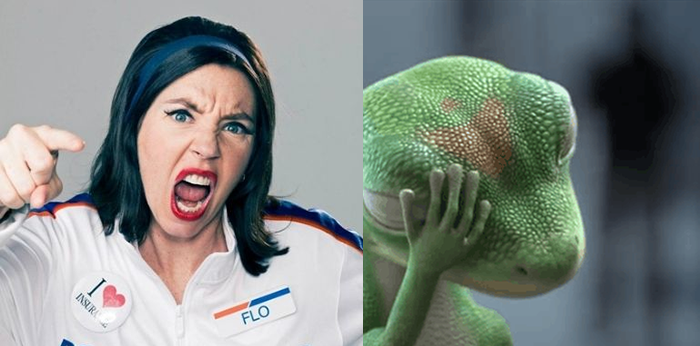
Apparently, the notion that car insurance is a scam has been making the rounds on the Internet. Folks, I was born for this moment in history, because as friends and frequent readers will know, I have been arguing that all insurance is a scam for years.
This is now the third straight post I’ve made that is largely or wholly ripped from social media. I blame the 2024 election on me being Very Online at the present moment (the last two posts, of course, were just about the election) and it seems that there’s a lot of us about. But this morning, the allegedly innocuous and highly popular (42,000 followers) @vanillaopinions posted the following on Twitter:
doctors will let you die if you’re an organ donor, car insurance is a scam, and parking should be free are the three most widespread things dumb people believe across party lines
-@vanillaopinions via Twitter
To which I responded that All** insurance is a scam. And she simply replied: “why do you think insurance is a scam?”
Well let me tell you!
I should probably clarify that the baseline concept of insurance is not innately and necessarily a scam, but the way it is practiced in every sector in the US is absolutely a scam.
The two main reasons are: (1) excess choice creating betting against yourself and (2) reneging:
(1) It would be one thing if there were just “car insurance” or “health insurance” or “life insurance” as a binary, get it or don’t. But the multiplicity of products and coverages turns people into sophisticated bettors against themselves. It’s basically impossible to win. And the weighing of spending more against risk is a calculation that no individual is actually equipped to make effectively, despite what economists say. And it makes people vaguely hope they have bad outcomes to justify the spending, or take unnecessary risk if they don’t. This ultimately makes insurance have a very toxic effect on the human psyche and creates a sense of inevitability of the game being rigged against them. Which is maybe not strictly true without the (2) factor…
(2) Insurance companies are always adversarial to claims because of the perception of fraud. The presumption is fraud until proven otherwise. Which means that there are countless cases of reneging on every form of insurance. Especially when there’s a massive disaster. Which means that the whole thing that insurance is supposed to “buy” you in the first place (namely the abstract concept of peace of mind or security) is wholly dependent on future outcomes that are unknown, plus the inevitability of an exhausting fight. So ultimately, insurance peddlers are selling you a fraudulent product: it doesn’t provide peace of mind or security or guarantees against loss. And the more catastrophic the loss or risk, the more toxic and stressful the actual result.
What’s the alternative? Every industry where insurance has cropped up should be nationalized with a standard-issue payout and taxes paid in. That both prevents discrimination (a third arm of the scam) and stops people having to bet against themselves. And guarantees payout. And the possible side effect of this would be a cap on insurance payouts: that you can’t insure your life more than a certain amount or your fancy car or expensive house for what it’s “worth” above the cap. That would be GREAT. A natural disincentive to excess consumption. And obviously we should just have single-payer healthcare run by the state and funded by taxes. An absolute no-brainer.
Let’s talk more about (3) discrimination: Initially, the insurance industry discriminated against everyone and everything that was different because it could maximize their profits. While this has been reined in somewhat over time, there are still many insidious ways this manifests to discriminate against traditionally marginalized groups. Let’s look at the example of ZIP code on car insurance: The insurance companies say that they need your ZIP code to determine how risky it is that you’re leaving your car in that zone. Maybe economically true, but the function of this is that the people who can least choose where they live (the poor and marginalized) pay more. And then this bites hard into scam factor (1), the betting against themselves. Empirically, this means that people in “bad” ZIP codes get less insurance and cheaper companies, thus meaning those facing the most risk have the least protection.
Then we have (4) advertising. This isn’t necessarily more of the scam itself, but more of a heuristic proof that you aren’t getting what you pay for with insurance. Insurance advertising is dominant on American airwaves. There’s hundreds of ads from tens of companies you know by heart. Every industry that advertises at that level finds it profitable to do so because their product is so high-margin (i.e. wasteful) that they can afford to hire top talent, ad agencies, SuperBowl airtime, and so on. Let’s think about what other industries are in this category? Junk food Prescription drugs New cars It’s not that everything these industries or the insurance companies do is innately a scam because they advertise a lot. But it’s a sure sign you aren’t getting what you pay for. Junk food. Prescription drugs. New cars. It’s not that everything these industries or the insurance companies do is innately a scam because they advertise a lot. But it’s a sure sign you aren’t getting what you pay for.
Finally, a combination of (2) and (3): Discrimination and reneging create a vicious cycle because the rich and powerful can afford lawyers and surrogate workers to fight the insurance companies for them. The poor/marginalized have no time or resources to fight. And they often don’t even know that they can dispute an insurance company’s ruling, much less sue them for damages. As a result, insurance functions as a regressive tax in society, burdening those at the bottom and serving those at the top.
As a lifelong debater, I’ve had some fun sparring with some of the Tweeters (see, you can’t say Xers, because that term is taken! Silly Elon), so there are plenty of replies to some brief rebuttals. Start here if you want to see the thread and all its deviations in its original format.
PS — Close friends may recall, in hearkening back to the original tweet, that I used to refuse to sign up to be an organ donor because I was worried an ER doctor might choose death for me if I showed up in critical condition so they could harvest my organs. I have long since evolved from this belief and signed up to be an organ donor. However, I couldn’t help but chuckle at this being lumped in with an opinion I still hold on an alleged checklist for stupidity.



